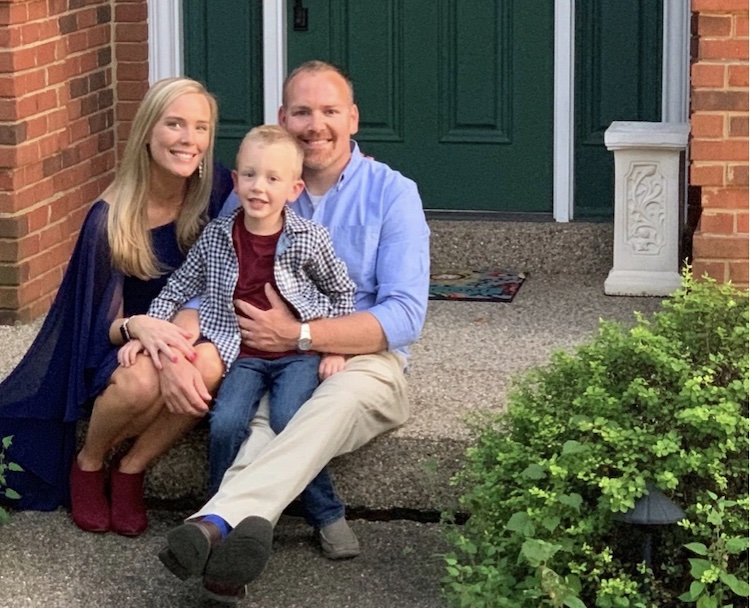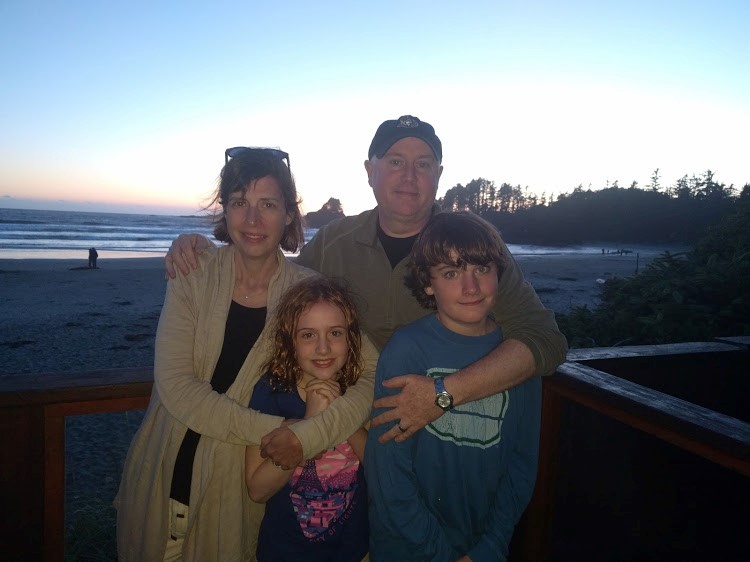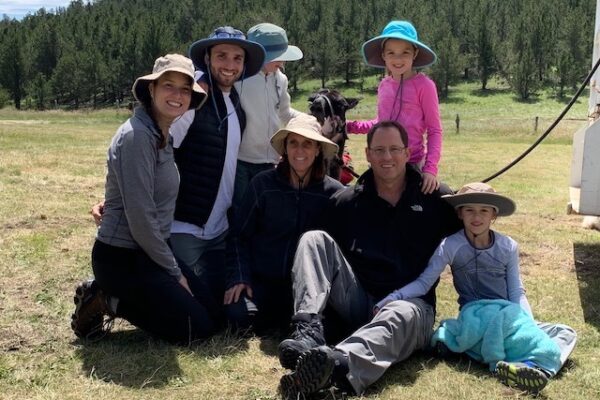In the fall of 2019, Ilana, a mother of 5, was diagnosed with stage 2 Non-Small Cell Lung Cancer. With no prior risk or known genetic or environmental factors, her cancer just appeared. She was active, “healthy” and happy. Being sick seemed completely impossible. She said herself, “How can I be sick while I feel so healthy?” Unfortunately, patients like Ilana are surprisingly common. Lung cancer is the second most common cancer diagnosed in the United States (1 in 16 people), and the leading cause of cancer deaths. Due to a lack of funding and research, lung cancer occurs half as often as breast cancer, but is twice as lethal.
Within weeks of diagnosis, Ilana had 20% of her right lung surgically removed and thankfully, her tumor was sent for genetic sequencing. This allowed us to learn the underlying cause of her cancer and open up potentially life-saving treatment options. Ilana recovered from surgery with unbelievable speed and grace, but unfortunately, the surgery revealed that the cancer had spread to two lymph nodes, so 5 weeks after surgery, Ilana began chemotherapy.
The chemotherapy was a bit more taxing. She was tired and nauseous, although always strong for her three youngest kids. Never once did she complain. Every mention of side-effects was immediately met with, “I’m so grateful I feel bad because it means the chemo is working [killing the cancer cells] and I’ll be better soon”. Ilana’s tenacity and optimism were inspiring and her treatments appeared to be working. She completed four rounds of chemotherapy, recovering strength and appetite a little slower after each one, but maintaining her determination and resilience. Her doctors hoped for a cure due to early detection, successful surgery, and the aggressive chemotherapy regimen.
The next year was spent enjoying time together and sending good vibes into the universe before each surveillance scan. Her 3-month, 6-month, and 9-month scans were “stable”. Best word ever! The further she got away from her initial diagnosis, the less likely a recurrence. Ilana ran and exercised almost daily, cut all added sugar out of her diet, and did everything in her power to remain cancer-free. She was determined to stay healthy.
Then came her one-year scan. Something lit up on her liver. Following a biopsy, we learned that her cancer was pretty set on sticking around. It was back and officially labeled “metastatic”. But even this dreaded news couldn’t dampen Ilana’s buoyancy. She was more committed than ever to beating the cancer. Surgery was quickly scheduled and 50% -60% of Ilana’s liver was removed. Following a brief recovery period, she began taking Retevmo (Selpercatinib), a novel RET Inhibitor that was only an option because of the early genetic sequencing and discovery of the RET alteration. Within weeks, a brain MRI discovered a solitary brain metastasis, which was successfully treated with Gamma Knife radiation. We are so grateful for Ilana’s amazing doctors, and their state-of-the-art protocols and treatments.
At the time of Ilana’s original diagnosis, there was no FDA approved efficacious drug for treating RET driven non-small cell lung cancer; the second time around, Selpercatinib had just been approved by the FDA. This treatment deactivates the product of the genetic abnormality specific to her tumor that drives the cancer’s abnormal growth. Ilana’s drugs are nothing short of miraculous: they demonstrate high efficacy, even on lesions in the brain – a very common metastasis for patients with lung cancer, and one that is difficult to treat using traditional methods.
Ilana’s surgeon told her that without this medication, she would have been inoperable! In just one year, Ilana’s treatment options expanded dramatically due to her doctor’s thorough work-up and cutting edge research. Selpercatinib boasts between 85-90% efficacy for managing and even shrinking further cancer growth. Despite such promising results, there’s still a long way to go. Unfortunately, many patients taking targeted cancer treatments develop resistance to the drugs. This means that these drugs are not a cure, and at this time there is no proven treatment to combat resistance.
That’s why we started The Happy Lungs Project. With your help we can raise the money necessary to fund critical research into drug resistance mechanisms and other dependable therapies, spread information about early tumor sequencing and help hundreds of thousands of people like Ilana live with lung cancer, so that one day, they can live without it.
Watch Ilana’s story through a series of videos and discover more about her life and journey with lung cancer and promising new treatment.








